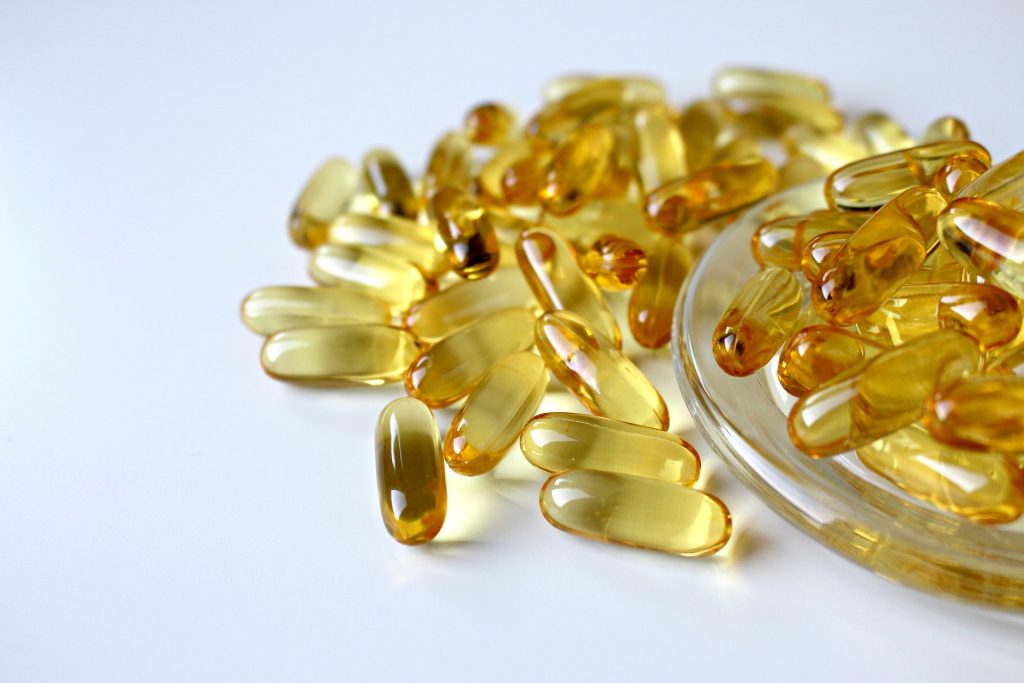 Animals cannot synthesise some of the omega 3 fatty acids they require for correct metabolic function. These fats are therefore essential and must be supplied in the diet, in a similar way that vitamins must be supplied in the diet. As with vitamins, a dietary deficiency of the essential fatty acids leads to a deficiency disease. The parent omega 3 fatty acid is alpha linolenic acid (ALA, C18: 3, n-3)) and this is derived from plant sources such as walnuts, green leafy vegetables and flax seeds and hemp seeds. However, metabolites of ALA, including docosahexaenoic acid (DHA, C22:6, n-3)) and eicosapentaenoic acid (EPA, C20:5, n-3)) can also fulfill the omega 3 fatty acid requirement and these can be obtained from algae, or animals that feed on algae such as krill and fish. Increasingly, it is being shown that a deficiency of the omega-3 fatty acids may be associated with the development of depression. This association may relate to the important functions that omega 3 fats play in brain development and plasticity.
Animals cannot synthesise some of the omega 3 fatty acids they require for correct metabolic function. These fats are therefore essential and must be supplied in the diet, in a similar way that vitamins must be supplied in the diet. As with vitamins, a dietary deficiency of the essential fatty acids leads to a deficiency disease. The parent omega 3 fatty acid is alpha linolenic acid (ALA, C18: 3, n-3)) and this is derived from plant sources such as walnuts, green leafy vegetables and flax seeds and hemp seeds. However, metabolites of ALA, including docosahexaenoic acid (DHA, C22:6, n-3)) and eicosapentaenoic acid (EPA, C20:5, n-3)) can also fulfill the omega 3 fatty acid requirement and these can be obtained from algae, or animals that feed on algae such as krill and fish. Increasingly, it is being shown that a deficiency of the omega-3 fatty acids may be associated with the development of depression. This association may relate to the important functions that omega 3 fats play in brain development and plasticity.
For example, evidence suggests that as consumption of fish and seafood increases, there is a concomitant reduction in the prevalence of depressive disorder and bipolar depression. As seafood and fish contain high amounts of DHA and EPA, it has been suggested that this could be the reason for the associations. In other studies, it has been shown that supplementation with EPA can improve the symptoms of major depressive disorder. For example, in one study, 22 patients with major depressive disorder that were supplemented with 2 grams of EPA per day for 4 weeks experienced significant clinical improvements in their depression by week 3 of treatment as measured by the Hamilton Depression Rating Scale. Those receiving the EPA had a 12.4 point reduction in depression rating, whereas those on the placebo had a 1.6 point improvement. In total 60 % of the patients receiving the EPA had a 50 % reduction in their depression rating. The authors also reported that no clinically relevant side effects were reported.

Postmortem analysis of the orbitofrontal cortex of patients has shown that DHA levels are 22 % lower in the brains of patients suffering from major depressive disorder, compared to the brains of control subjects. In females, the deficit in DHA concentrations was highest with a 32 % deficit, compared to a 16 % deficit in males. This supports the theory that DHA is a major structural component of the brain and that it may be required for the correct function of normal mental faculties. In particular, DHA is required for the correct fluidity of the neuronal cell membranes, and may be a precursor to important factors that maintain the health of neurones. A deficiency of DHA or its metabolites in the diet, may therefore be a cause of depression and other mood disorders. Fish oils contain EPA and DHA, but they can also be obtained through consumption of algal oils.
In another study, patients already receiving pharmaceutical treatment for depression were administered 1 gram of EPA per day for 12 weeks. The patients administered the EPA experienced significantly greater improvements in their depression compared to the placebo, as measured on the Hamilton Depression Rating Scale and the Montgomery-Asberg Depression Rating Scale. The clinical benefits of the EPA was evident by week 4 of the study. Of those receiving the EPA, 59 % experienced a 50 % reduction in their rating of depression, suggesting the EPA has had caused a substantial improvement. The authors noted that strong beneficial effects were seen regarding feelings of depression, anxiety, sleep, lassitude, libido and suicidality in the EPA group. Interestingly, higher doses of EPA (2 gram per day and 4 gram per day) were not as effective as 1 gram per day, suggesting that more is not better with regard the mood elevating effects of EPA supplementation.
Eat Well, Stay Healthy, Protect Yourself
RdB
